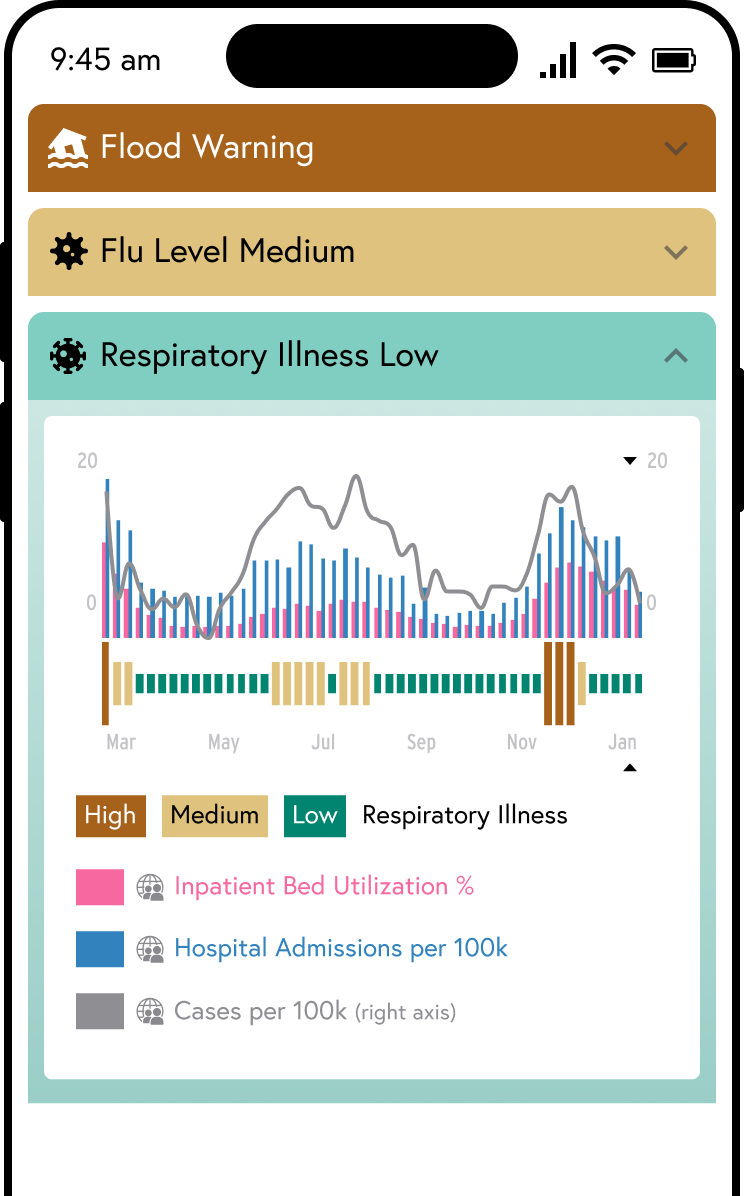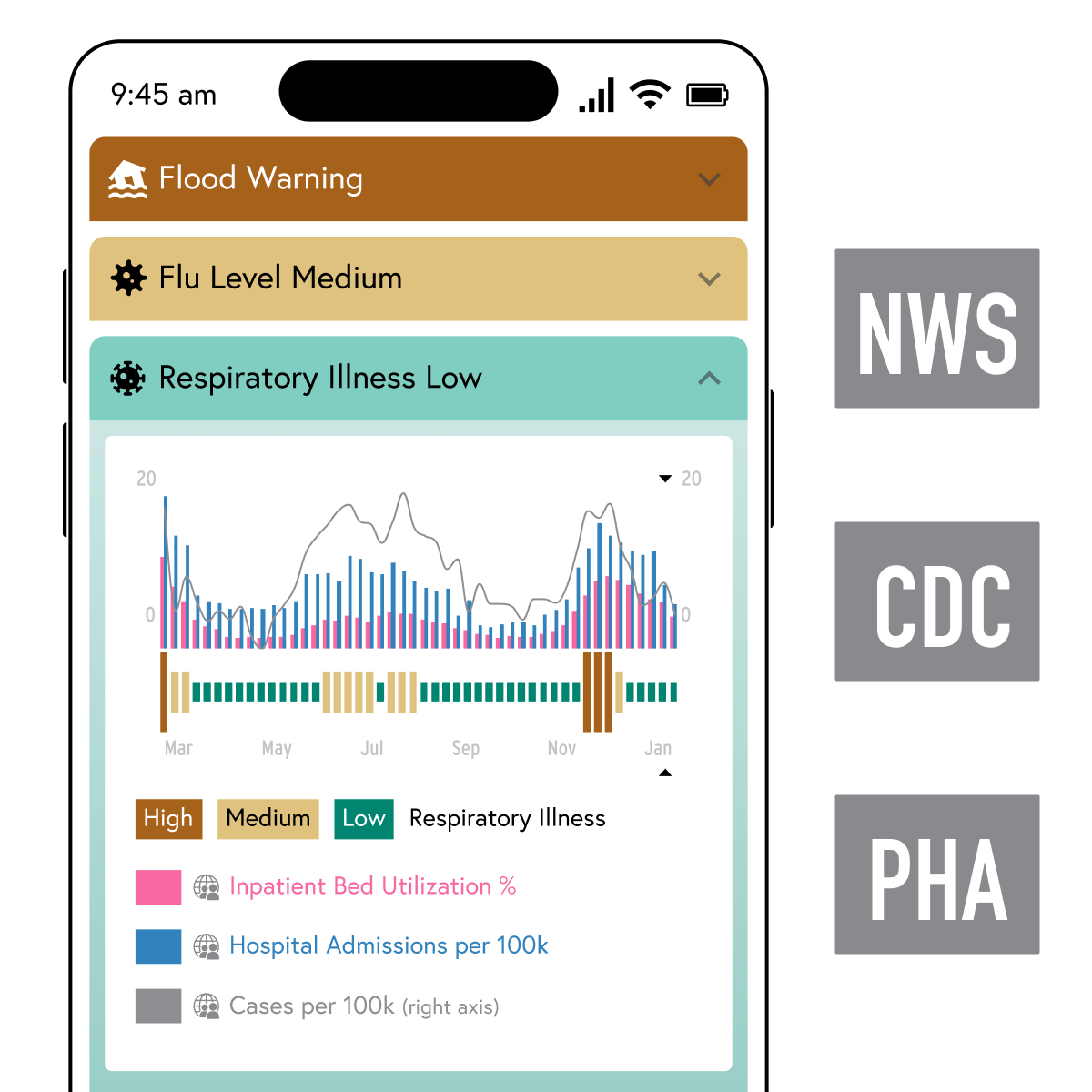Wehealth Notify is a free app available to the general public. It monitors verified sources of health & safety information and sends enhanced alerts with personalized action plans. Sources include the National Weather Service, the CDC, and various state, city, county and tribal agencies nationwide.
Wehealth is a Weather Ready Nation Ambassador™, an initiative of the U.S. Department of Commerce and National Oceanic and Atmospheric Administration (NOAA), to strengthen partnerships toward building community resilience in the face of increasing vulnerability to extreme weather events. Weather-Ready Nation (WRN) Ambassador™ and the Weather-Ready Nation (WRN) Ambassador™ logo are trademarks of the U.S. Department of Commerce and National Oceanic and Atmospheric Administration, used with permission.
Wehealth is a Public Benefit Corporation with a mission to build digital infrastructure to enhance global preparedness and resilience. Wehealth connects communities with public agencies, scientists, medical professionals, research labs and domain experts through an iterative process of co-development that improves outcomes and ensures that the solutions benefit all.
The app is anonymous and doesn’t require any personal information or location data. It is authorized by public health authorities and meets rigorous privacy and security requirements. It works in all 3,000+ counties & territories nationwide. Developed by Wehealth in collaboration with the University of Arizona and the Arizona Department of Health Services (ADHS).

★★★★★
"It's really simple and easy to navigate, but also has a lot of information at your fingertips. It's all about being safe with this app.”

★★★★★
"It only alerts me when there's something important for me to know about"

★★★★★
It's very secure because everything is sent out as anonymous. Everything is stored on the phone and not tracked at the same time.
Frequently Asked Questions
-
Is the app available for free?
The app is completely free for all to use and will always be free.
-
How is the app sustained?
As a Public Benefit Corporation, Wehealth’s mission is to build digital infrastructure to enhance global preparedness and resilience. Making this app available to everyone directly furthers this mission. Wehealth provides additional infrastructure and services to public health departments and other government agencies and a majority of the funding comes from the CDC. This app serves as the free public facing component of the overall solution.
-
How can I promote the App in my community / county / state?
The app is free for all to use. You can use the app marketing toolkit to find images, logos and other assets to promote the app on social media, web, print and other media.
-
I am a public health official or affiliated with a government agency. How do I access the data for my community?
You can download the Wehealth Portal app, sign in to it using your work email, and then request access for your community through it. Please keep in mind that currently we have a waitlist and are doing our best to onboard everyone. You will hear back soon when we are ready to onboard you.
-
How is this app governed?
The Wehealth Forum is an invite-only working group of public health officials, domain experts, partners and customers who help prioritize the roadmap, evaluate upcoming features and serve as the advisory board. Wehealth is also a Weather Ready Nation Ambassador™, an initiative of the U.S. Department of Commerce and National Oceanic and Atmospheric Administration (NOAA), to strengthen partnerships toward building community resilience in the face of increasing vulnerability to extreme weather events.
-
I am a public health official or I am affiliated with a government agency. How can I learn more about the overall Wehealth solution?
-
I have additional questions
For any other questions, please contact us.











